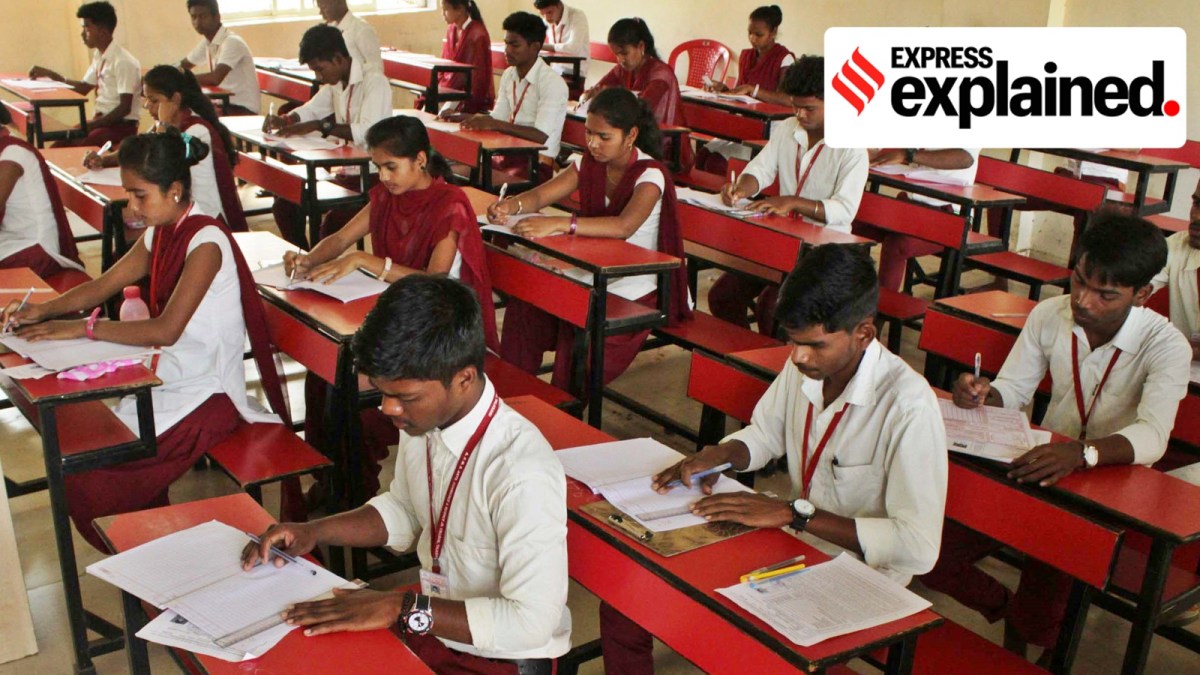Why Andhra Pradesh govt reversed its decision to let nearly 80,000 state board students take CBSE exam
Under the previous YSRCP government, 1,000 state education board schools had been affiliated with the CBSE. Here is why the decision on the CBSE board exam was reversed.

A few months from now, almost 80,000 Class 10 students in Andhra Pradesh will sit for exams conducted by the state education board, and not the Central Board of Secondary Education (CBSE), as they had been told so far.
Earlier this month, the TDP government reversed a decision taken by the previous YSRCP regime last year, saying the move was announced without “adequate groundwork”. What explains the flip-flop and what does this mean for the students?
First, why did some Andhra schools switch to CBSE?
Under the YSRCP government, 1,000 of the 6,845 government high schools in the state were affiliated with the CBSE in 2023. Around 76,990 students from these schools were expected to appear for the CBSE Class 10 board exams in the current academic year.
The move was part of the government’s larger plan to introduce changes in the education system. In 2021, former AP Chief Minister Y S Jagan Mohan Reddy asked officials to get all government schools affiliated with CBSE.
After the TDP government announced the reversal, Reddy said in a post on X that the cancellation “denies quality education” to students. He called the decision “anti-poor”, “regressive” and discriminatory against government schools’ students.
In response, Nara Lokesh, AP’s Minister for Human Resource Development, wrote on X that the future of those students had become uncertain because they were required to write exams in the CBSE system, and the change was brought in without training the teachers.
What prompted the reversal?
In August, the state assessed Class 10 students across these schools with question papers set according to CBSE standards.
According to the state’s School Education Secretary Kona Sasidhar, this was done because “feedback was received from a lot of quarters that students were not prepared”, and there had been no “base-level assessment to see whether these schools were equipped” for the CBSE assessment before the switch.
The assessment was in English, Mathematics, Science and Social Studies. The decision on exams was reversed after students’ performance was found to be “alarmingly poor,” according to a communication from the state government.
Of 1,000 schools, 326 had a pass percentage of zero, meaning all students failed in all four subjects. The passing mark was 35. More than half the schools – 556 – had a pass percentage in the 1% to 25% range. A total of 66 schools had a pass percentage in the 26% to 50% range, while 37 schools recorded a pass percentage of 51% to 75%.
Only 14 schools had a pass percentage of 76% to 99%, and only one school saw all students clearing all subjects.
Officials said that they had expected the average marks to be at least around 55 to 60, and students may then have been able to improve with remedial measures. “We didn’t think we would have to reverse this. When the results came, we realised things were really bad,” an official said.
What has this performance been attributed to?
Sasidhar said, “CBSE and State board have different methods of assessment. In the state board, it is more of rote memorisation, straight from the textbook. Students still put effort there, but it’s different… A CBSE assessment involves critical thinking, along with case study-based and analytical questions,” he said. The difference persists despite AP government schools using NCERT textbooks.
The government communication stated that the “underperformance also reflects challenges in the government’s rapid transition to the CBSE system”, and that without significant improvement these students risk failing their exams, possibly leading to a higher dropout rate.
“Till Class 9, these students were being assessed in the State board way. Overnight, they cannot be asked to appear for something different. Neither were the teachers trained for this, nor were the students exposed to this type of assessment,” Sasidhar said.
What happens next?
Sasidhar said the state will introduce changes in earlier classes. “We will start improving assessment standards gradually, from Class 6 onwards in the next academic year, across all government schools. Let’s say we introduce multiple-choice questions, easy case studies, and a few analytical questions. We will also include training for teachers, so they can be reoriented,” he said.
As for the shift to CBSE, he said the state is “not against it.” “We are not cancelling it; we have only deferred it this year. We are saying it has to be a gradual process, and let’s first build capacity,” he added.
On students who are in Class 9 this year, and whether they are likely to be registered for next year’s board exams, Sasidhar said, “We may take some time. Now that we have got the baseline assessment, we are in no hurry… the focus will be on learning outcomes, and we are looking at improving quality in teaching and assessment.”